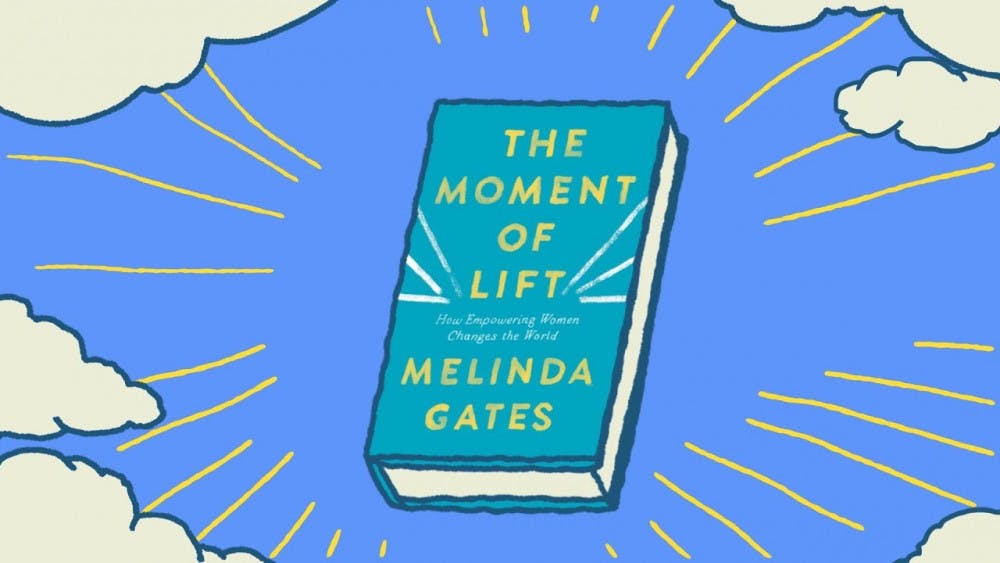 Melinda Gates, and her husband Bill, are computer scientists and major philanthropists whose works, software, devices and giving have far-reaching, likely unquantifiable impacts. With more money than they can spend, they have dedicated themselves to numerous humanitarian efforts, especially those concerning education within the United States, and this book, a memoir of sorts for Melinda, documents some of their efforts. I listened to this work as an audiobook on go/overdrive/ as Melinda Gates recounts her travels to some of the least privileged communities around the world. Some were burdened by fertility, others by a lack of infrastructure that kept people from accessing necessary services, and yet others were victims of the nasty nexus of unemployment and sexual abuse. Throughout the work, Melinda Gates’ focus and goal have been to bolster women and to support their needs all around the world. She repeated a central, two-part thesis over and over again throughout her work, forwarding the idea that a key factor in uplifting humanity is allowing social frameworks in which women can decide 1. when and 2. whether to have children. These succinct ideas, she proffers, allow women to dedicate a greater quantity and quality of resources to each child who is born. With such a simple and straightforward thought, she easily made me a disciple. What makes these notions more arrestingly compelling, however, is that these ideas are coming from a woman who is a known Catholic, given that, historically, the Catholic Church has not encouraged a variety of forms of birth control and Melinda Gates suggests that birth control can, in fact, assuage a number of social ills. In this respect, these beliefs might put Melinda at odds with her religion and her Catholic peers. Yet, she still dares to forward a platform that she sees has proven results.
Melinda Gates, and her husband Bill, are computer scientists and major philanthropists whose works, software, devices and giving have far-reaching, likely unquantifiable impacts. With more money than they can spend, they have dedicated themselves to numerous humanitarian efforts, especially those concerning education within the United States, and this book, a memoir of sorts for Melinda, documents some of their efforts. I listened to this work as an audiobook on go/overdrive/ as Melinda Gates recounts her travels to some of the least privileged communities around the world. Some were burdened by fertility, others by a lack of infrastructure that kept people from accessing necessary services, and yet others were victims of the nasty nexus of unemployment and sexual abuse. Throughout the work, Melinda Gates’ focus and goal have been to bolster women and to support their needs all around the world. She repeated a central, two-part thesis over and over again throughout her work, forwarding the idea that a key factor in uplifting humanity is allowing social frameworks in which women can decide 1. when and 2. whether to have children. These succinct ideas, she proffers, allow women to dedicate a greater quantity and quality of resources to each child who is born. With such a simple and straightforward thought, she easily made me a disciple. What makes these notions more arrestingly compelling, however, is that these ideas are coming from a woman who is a known Catholic, given that, historically, the Catholic Church has not encouraged a variety of forms of birth control and Melinda Gates suggests that birth control can, in fact, assuage a number of social ills. In this respect, these beliefs might put Melinda at odds with her religion and her Catholic peers. Yet, she still dares to forward a platform that she sees has proven results.
The book is not a revelation. It is not avant-garde. It is not an emotional roller coaster. It asserts basic truths that shouldn’t be labeled as “liberal,” but will be. It asserts that women have more to contribute to the world than the fruit of their loins. It asserts that women who labor have expertise to offer about improving the processes of that labor. It asserts that women are willing to engage in less than desirable work to protect their children and families. It asserts that bodily autonomy is a right. Little of this is news. It would seem that little of this would be debatable. So I have to wonder who Gates’ audience is and who exactly needs to hear this message. I fear that some people will only bend their ears to hear this message because it is coming from a rich and powerful person. But these ideas are found elsewhere throughout society in the calls to protect safe and legal abortions, to protect farmers’ rights and to decriminalize sex work, for example. I commend Melinda Gates for using her platform and visibility to shout the message louder and wider. But I can’t say any idea within the book is explicitly novel. The book suggests that even the truth must be presented persuasively.
The Librarian is in: 'The Moment of Lift'

Comments



